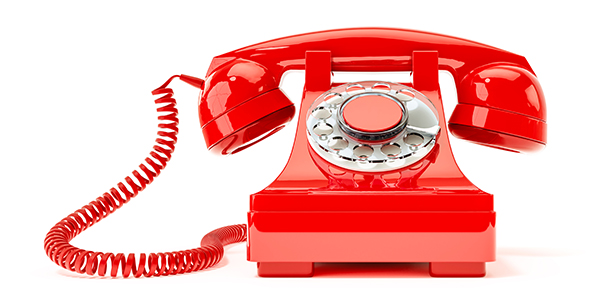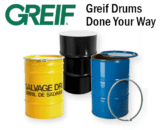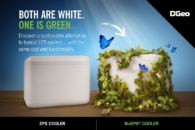
Wouldn’t it be great if, the next time you had a question about Dangerous Goods transport—any question at all—you could just pick up the phone and ask an expert?
You can. And it’s free. Just call the Labelmaster Regulatory Hotline.
Call 1.800.621.5808—8 a.m. to 5 p.m., Central time, Monday through Friday—and ask to speak to a member of the Regs Team. (We’ve actually been known to answer the phone as late as 6:30 p.m.) For easier questions you’ll likely get an immediate answer; if it requires a little research we’ll get back to you as quickly as possible.
You can also email us your questions for a written response.
No question too simple or too complicated
Because we make DG compliance and safety our highest priority, there is literally no question too simple or too complicated for our experts to answer; however, there are limitations. Questions that are too time consuming, or that have liability limitations associated with them are more appropriate for Labelmaster’s Dangerous Goods Consultants. All of our regulatory experts draw on more than 180 years of combined regulatory experience to help you stay compliant, no matter how easy or challenging your question might be.
Maybe you don’t ship hazmat very often, and you have a question that seems too basic for expert consultation. Maybe you’re afraid our experts will laugh at you. (They won’t.) Maybe you’re afraid you’re just wasting their time. (You aren’t.) Maybe you’re concerned one question will just lead to another. (It might, and we’re okay with that.)
On the other hand, you might be a longtime DG pro yourself, and you’re finding it frustrating that you can’t find the answer on your own. No worries—we get it! With multiple 1000-page regulatory manuals updated every year, there are always strange new wrinkles and contradictions to sort out. We’re happy to work through them with you!
What kinds of subjects do we address?
What kinds of questions do we get at the hotline? Typical subjects run from the very basic (including “is this hazmat?”) to the more advanced, and we hear plenty of questions about packaging, training and—-of course—lithium batteries.
Here are a few actual questions we’ve fielded recently:
- How often do we need to have recurrent training if we ship by
air and ground in the U.S., and only internationally by air? - What kind of training do I need to ship a 150 Wh lithium ion
battery from the U.S. to Germany by air? - Where can I find the UN number and proper shipping name for a
chemical I need to ship? - Can I put whatever I want in a UN4GV box as long as I don’t
exceed the maximum weight rating? - Why can’t I find a Class 3 Combustible Liquid hazard class label
to buy? - Is it legal to put two UN numbers on the same lithium battery
mark?
In the near future, we’ll start running a regular feature in this space showcasing some of the more relevant and interesting questions we get, along with the answers from our experts.
Keep an eye out for this new feature. Meanwhile, feel free to send your questions our way. Our experts are ready to help you keep your shipments compliant and safe, and there is no question that’s more important than yours.
1.800.621.5808
Make sure your shipments are safe and in complete compliance with a full line of solutions from Labelmaster—a full-service provider of goods and services for hazardous materials and Dangerous Goods professionals, shippers, transport operators and EH&S providers.



For UN3082, IATA has Special Provision A197 for containers of 5 L or less that basically makes the shipment not regulated.
Does IMDG and/or 49CFR have similar provisions that allowing UN3082 to ship as not regulated?
49 CFR has a similar allowance if the material in question is a Marine Pollutant that is not a Hazardous Waste or Hazardous Substance (i.e. an RQ). See 49 CFR 171.4.
We return special permit gas cylinders frequently . We do not hold the special permits the gas companies that produce them do . If we are returning the cylinders to the vendor who holds the permit do we have to reference the SP number on our paperwork or can we send them back normally as we do most of our gases ( in compliance with all of the other regs) Thank you Lonnie
PS ….bring back CFR 49 on the DGIS system . It worked great and was the best thing about that program .
Thanks for your response, Lawrence!
Every SP is different. Typically, the SP itself will have language dictating what provision(s) of the regulations (49 CFR only—SP’s only apply within US jurisdictions) it exempts the bearer from, as well as if the SP is transferable to subsequent users of the subject packaging or not.
As for the 49 CFR, DGIS DOES validate against the latest provisions of US Ground regulations as specified in that publication.
Hello! I’m looking for a visual to best explain the 25/75 loading rule to newbies. Do you have anything like that in your database?
Do I need a tank endorsement to haul 2.5gal buckets of non hazardous liquid in a van trailer?
No — no tank endorsement is required.
looking to ship a Battery filled with alkali from Canada to Bangladesh . weighing 29.4kg , will the markings on the box 4G/y44/S/19
USA / m5586 be good enough for the airline
Hi Chris, unfortunately, we cannot answer that. You would have to check with (or be trained by) Canadian authorities. Legally, we cannot opine.
Thanks,
Labelmaster
Can I put 1 liter metal cans in a UN4G box that is supposed to be for 1 gallon metal cans as long as I don’t exceed the max weight rating?
Where in IATA does it explain this? Thanks
Permission to change (by reducing) the lading depends on the status of the box. In general, 4G boxes are not typically rated to change the lading. 4GV (i.e. variation) boxes may be, depending on circumstances. The best thing to do would be to contact the vendor from which the box came to determine its flexibility (or not) in such situations. They can examine the test report and advise accordingly.
~ Nikki Burgess, DGSA
Can UN3496 be transported on an airplane?
The answer to your question (seen below) is yes—air transport is allowed. When transporting by air, you must satisfy the applicable conditions stated in A199. As you noted, that is very minimal, so just be sure to do so.
Special Provision A199, The UN number UN 3496 is only applicable in sea transport. The words “Not Restricted” and the Special Provision number must be included in the description of the substance on the Air Waybill as required by 8.2.6, when an Air Waybill is used.
If it is only applicable in SEA Transport, then why would I be instructed to include “Not Restricted” on an AIR Waybill?